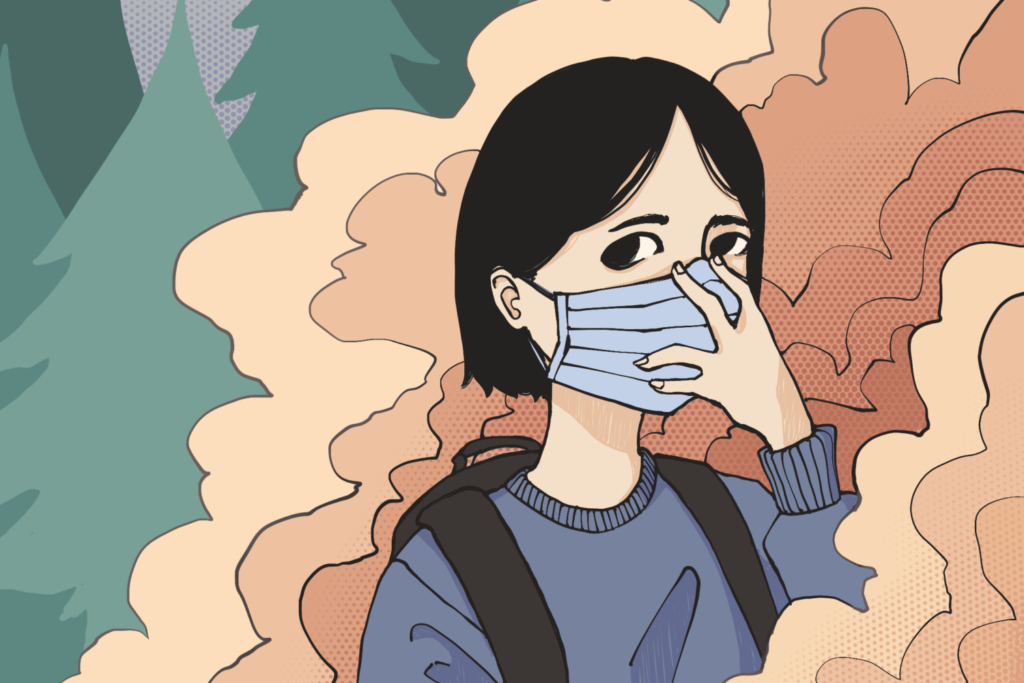As wildfire season returns and air quality fluctuates, the Palo Alto Unified School District announced updated protocols on Aug. 18 that would keep students indoors when Air Quality Index levels pass 150.
According to these protocols, the district will suspend COVID-19 regulations and hold all classes and lunches indoors with windows closed when AQI levels rise above 150 — though contract negotiations between the Palo Alto Educators Association and PAUSD indicate that the threshold, per PAUSD’s request, could increase to an AQI of 201.
Regardless of the AQI level, schools will remain open unless the Bay Area Air Quality Management recommends school closure, in which case PAUSD will consider closing schools.
Currently, PAUSD has no viable alternative to canceling school because the State of California does not count online instructional hours toward the required hours per school year.
We urge PAUSD to recommend to the California Department of Education to certify online education as instructional hours in cases of poor air quality.
While outdoor activity during high AQI levels imposes health hazards, disregarding COVID-19 regulations by moving activities indoors also puts students and staff at risk. Indoor activities threaten those who remain unvaccinated, are at an elevated risk or have family members vulnerable to the virus. Furthermore, vaccinated individuals can still be infected with COVID-19 through its variant strains.
Instead of putting students and staff in danger, schools should be prepared to switch to online learning.
“There is no need to risk major disruptions to the academic calendar and flow of learning.”
— Laura Malagrino, former Verde Editor-in-Chief
According to the Paly Voice, the PAEA is planning on creating built-in “smoke days,” in which schools would close and instead make the days up at the end of the school year — similar to what districts on the East Coast do on “snow days.”
We believe “smoke days” are avoidable. By authorizing online instructional hours, the California Board of Education would allow students to receive COVID-safe, uninterrupted instruction — which was effectively implemented during the pandemic — without extending the school year.
“There is no need to risk major disruptions to the academic calendar and flow of learning,” former Verde Editor-in-Chief Laura Malagrino said.
Malagrino’s college classes were canceled due to Hurricane Ida and have been operating online ever since.
As stated by the San Francisco Chronicle, four million acres of land were burned in 2020 (double the amount burned in 2018), and two million acres have burned so far in 2021. While the coronavirus may no longer be a problem in future years, climate change is bound to worsen causing wildfires to increase. A more permanent solution that addresses everyone’s needs is necessary.



